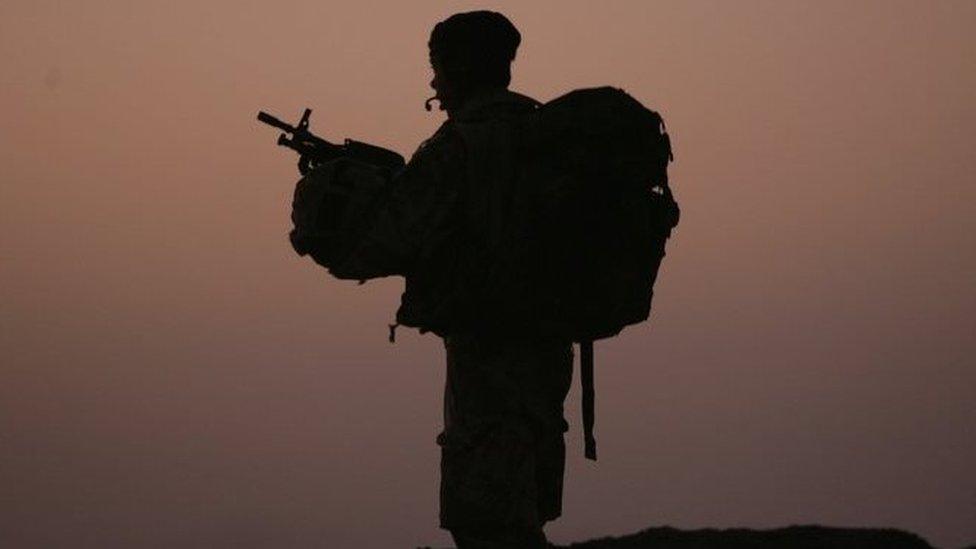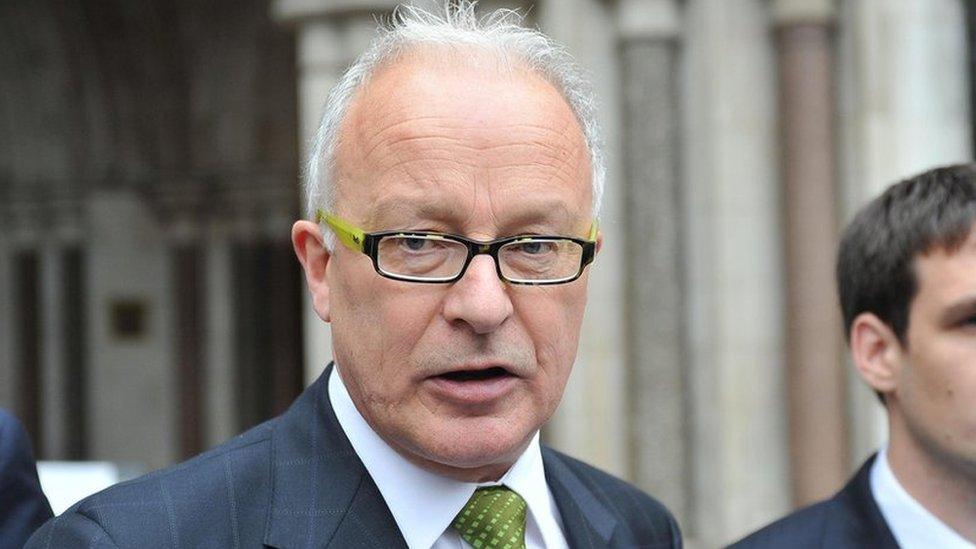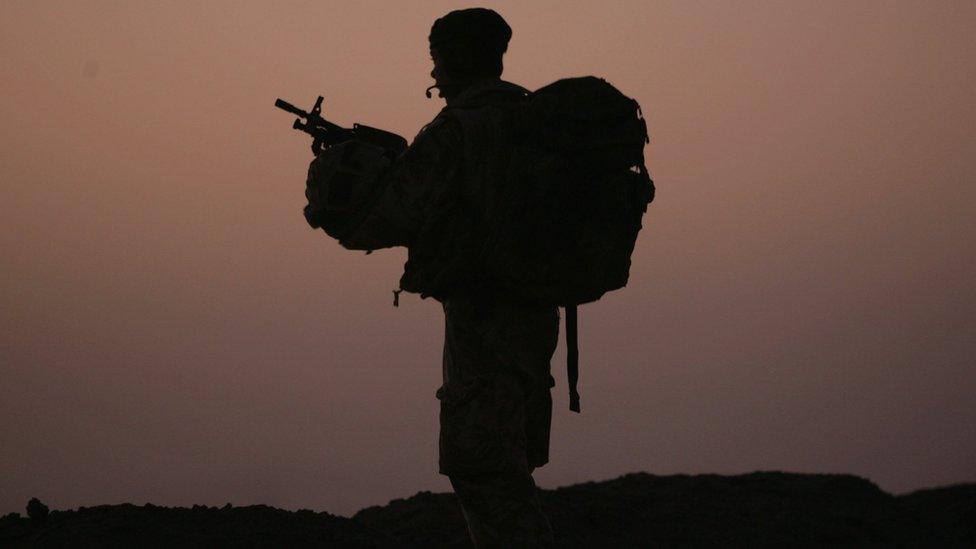British ex-soldier Major Robert Campbell cleared over Iraqi teenager's death
- Published

A British ex-soldier has been cleared over the death of an Iraqi teenager, after 17 years of investigations.
Saeed Shabram's family say he drowned after being forced into a river by UK soldiers in Basra in 2003.
But a report published on Thursday, external said there was no reliable evidence that soldiers were responsible.
Maj Robert Campbell, one of the accused soldiers, said he had "finally been exonerated" but that the allegations had "destroyed" his career.
None of the soldiers were ever charged over the death, despite a criminal inquiry by military police and further investigations by the now defunct Iraq Historical Allegations Team (IHAT).
But Mr Shabram's death became the subject of a judge-led inquiry by the Iraq Fatalities Investigations team.
'Jumped or fell' into water
Baroness Heather Hallett, who led the Iraq Fatalities Investigations probe, said it was possible Mr Shabram's family had been misled by false witnesses who claimed he had been pushed into the water.
She said it was "most likely" that Mr Shabram "jumped or fell" into the water, in the process of trying to escape what he believed would be "dire punishment for looting".
She added there was no need for her to further explore the training and instructions given to British soldiers on dealing with looters or alleged looters, and that she had no recommendations to make.
"I am relieved that after eight investigations we have finally been exonerated," Maj Campbell told BBC defence correspondent Jonathan Beale.
"But I am angry that it took eight investigations, 17 years and destroyed my career," he said.
"I'm angry that the Army and MoD [Ministry of Defence] abandoned us. Angry that despite the two key Iraqi 'witnesses' being exposed as liars in 2006, the MoD and IHAT chose to believe them anyway and ground us into the dust.
"I'm grateful to Baroness Hallett for her findings, but I already knew I was innocent," he said.
Speaking to Radio 4's Today programme in 2018, Maj Campbell said he had not had a good night's sleep for 15 years, as a result of the repeated investigations. Ex-Army chief Lord Richard Dannatt told the same programme the soldier had gone through "a 15-year nightmare".
Veterans Minister Johnny Mercer said in a statement that he hoped Thursday's findings "will bring some closure and reassurance to the family and veterans involved in this process".
He added: "Nobody wants to see service personnel or veterans facing extensive reinvestigations into the same incident, and our Overseas Operations Bill will help provide greater certainty and protections in the future."
The government says the new law will protect the armed forces from "vexatious prosecutions" but critics argue it could decriminalise torture.
The Iraq Fatality Investigations (IFI) team was set up after the High Court ruled that investigations conducted by the Iraq Historical Allegations Team (IHAT) should be followed up in the form of an inquest.
IHAT had been looking into allegations made against Iraq war veterans but was shut down after the human rights lawyer Phil Shiner, involved in many of the abuse allegation cases, was struck off for misconduct.
The £34m IHAT probe did not lead to any prosecutions and was branded as an "unmitigated failure" by MPs on the House of Commons Defence Committee.
- Published3 April 2018

- Published2 February 2017

- Published10 February 2017
